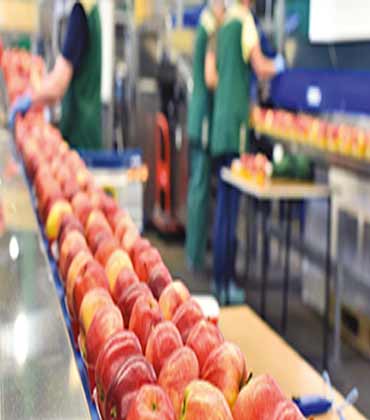THANK YOU FOR SUBSCRIBING
By Todd Jongen, Director Non-Foods Product Development and Packaging Science, US Foods
A Brief History of Carry-Out Food Packaging
By Robert Erhard, Head of Dairy, Corporate Sustainable Agricultural Development, Nestle
Transforming the Food Industry Through a Sustainable...
By Gina M. Cullerton, FSQA Manager, Clemens Food Group
The Relationship Triangle: How Relationships within the...

Traceability: Enhancing our program in the Produce Industry
Takashi Nakamura, Vice President, Fresh Del Monte

 Takashi Nakamura, Vice President at Fresh Del Monte
Takashi Nakamura, Vice President at Fresh Del MonteConsumer and customer expectations are becoming more diverse, demanding, and global for more natural, fresh, and wholesome products. While the trends for consumer behavior are encouraging for the health and wellness of all, the challenges in food safety are enhanced by pushing agriculture practices to elevate beyond what “nature intended.” Additionally, a supply chain that continues to expand and grow in areas that are global, and the assurances needed from our consumers for a high-quality and safe product are not insignificant.
As the produce industry annually completes traceback exercises, at Fresh Del Monte, we conduct, on average, over 150 mock recalls throughout our global operations, and they cover all of our products. We comply with standards as set up by globally recognized food safety organization schemes (GFSI) as well as customer and regulatory requirements for each region.
Our industry understands the importance of being able to track and trace from field to table, and we welcome additional regulatory requirements such as FSMA 204 that embrace the need to ensure not only a high-quality and safe supply chain but also meet requirements for the U.S. government to track and trace in a timely and accurate manner.
With any vertically integrated organization and with a grower supplier base in the United States as well as from a global supplier network, FSMA 204 is a progressive route in expanding the programs under the FDA’s Food Safety Modernization Act (FSMA). One important program is the Foreign Supplier Verification Program (FSVP), which ensures that both domestic and foreign grower suppliers abide by the same food safety program requirements. We at Fresh Del Monte have a robust vendor approval program that we rigorously maintain and ensure proper guidance to our operating groups, inclusive of products imported or sourced locally within the United States.
"While the industry works on refining the means to aggregate the required data, all of us in the produce industry recognize the importance of this key initiative in delivering a safe food supply to our consumers."
The FSVP requires an importer of record that is not subject to certain exemptions to have the following available upon an FDA inspection/review: hazard analysis, food safety plan, outlined verification procedures and documentation demonstrating foreign suppliers are compliant with food safety regulations, a designated individual that is trained on preventive controls (PCQI), and a solid good manufacturing practice system.
This program highlights that regardless of where the product was sourced, there is a solid “baseline” of food safety protocols and programs in place to ensure a quality and safe supply. This all assists in supporting more accurate and timelier traceback and trace forward capability to assist local regulatory bodies in the event of a product withdrawal or outbreak investigation.
At Fresh Del Monte, we endeavor to be more diligent, and our current vendor approval program continuously reviews the industry, our product line, and regulatory bodies to ensure we have all the relevant data and information to apply appropriate and rigorous risk assessments. These internal risk assessments are critical functions of our Corporate and local food safety teams, underlying the need for our consumers to have the safest products available.
FSMA 204 compliance will be challenging, and we welcome the FDA’s position on educating and regulate. The current compliance date is in 2026, and we are well on our way to compliance, as the current requirements of key data elements for critical tracking events are currently housed in our systems. While the industry works on refining the means to aggregate the required data, all of us in the produce industry recognize the importance of this key initiative in delivering a safe food supply to our consumers. FSMA has come a long way since being signed into law in 2011, and we certainly support its foundation of ensuring a recall does not occur through preventive food safety measures based on risk assessments and diligent application of solid and robust food safety programs.
Read Also















